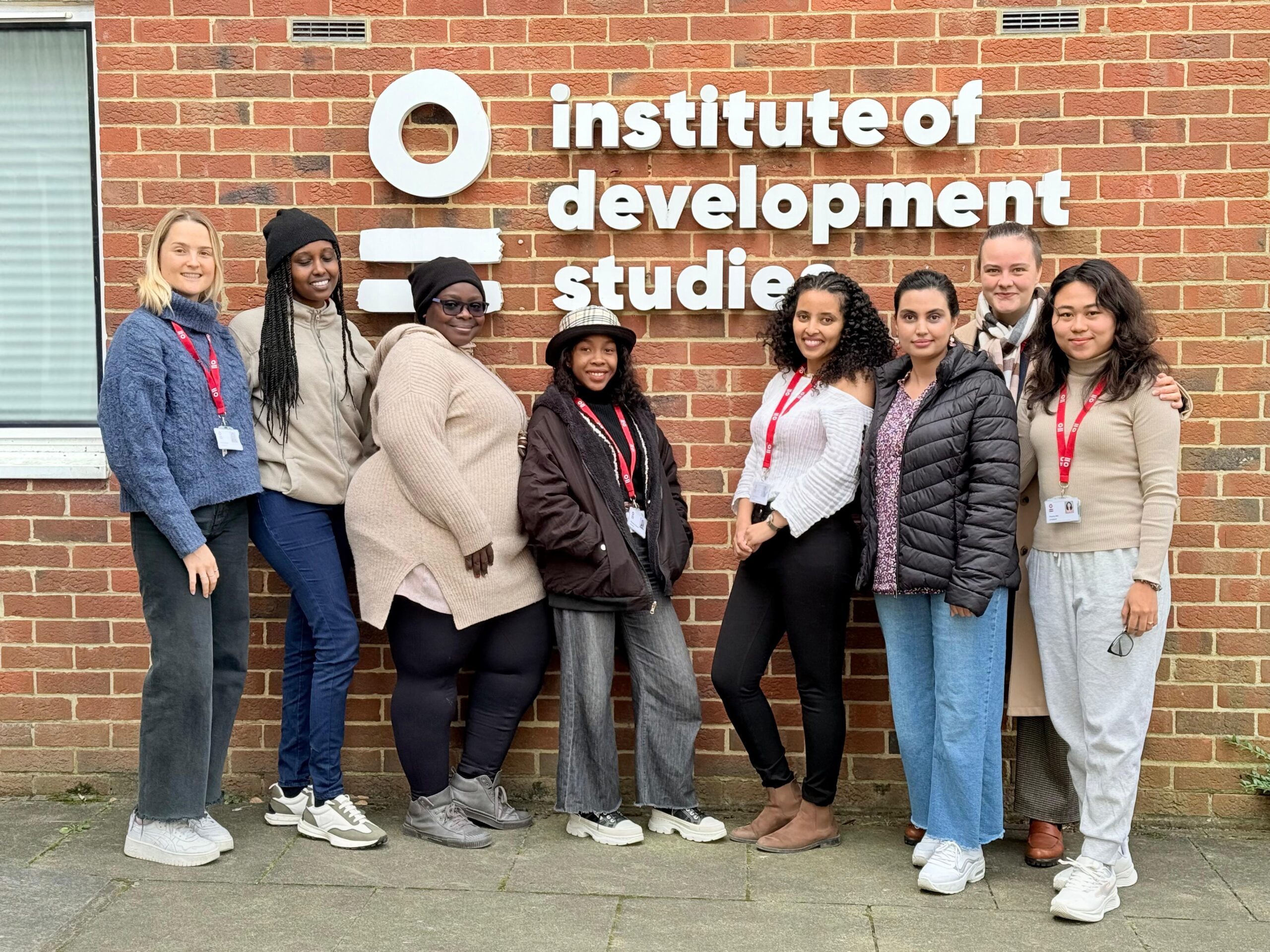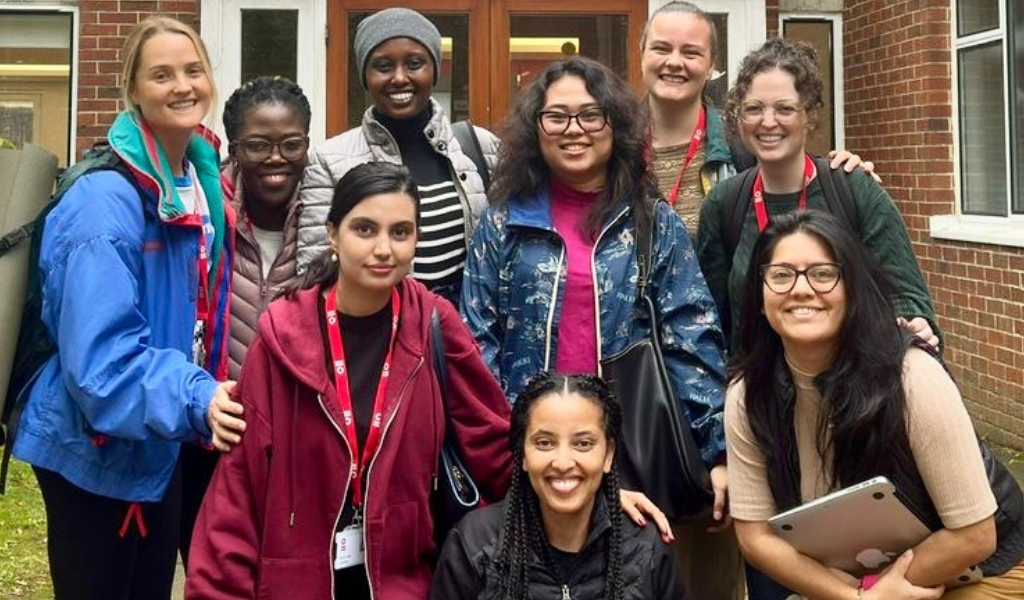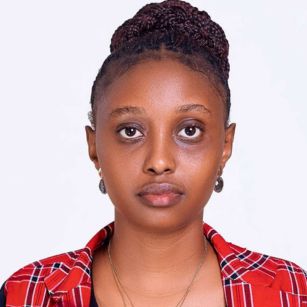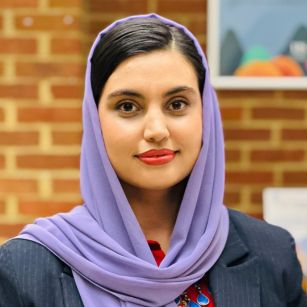As IDS releases its report Building Solidarities: Gender Justice in a Time of Backlash, we asked some of the students currently studying MA Gender & Development about what solidarities mean to them.
Our current cohort includes the first woman from her village in Tanzania to pursue higher education, and a Danish scholar who had her career and perspective changed through meeting Indigenous people and activists in Iceland.

Maria del Rosario Cabanillas Alvarez
Before coming to IDS, Maria del Rosario Cabanillas Alvarez founded a non-profit organisation focused on mental health and gender equality in rural communities. Her role was to design and implement programmes that addressed systemic barriers and advocate for inclusive policies to support access to mental health in public schools and rural areas.
“When I graduate, I aim to develop and implement gender-sensitive policies and programmes, particularly in Latin America, to bridge gaps in access to education, healthcare, and justice for women,” she says. “The MA in Gender & Development programme provides me with knowledge of theoretical frameworks, promotes my internal reflection and equips me with practical tools to drive systemic change and amplify voices that often go unheard.
For me, solidarities mean building alliances across differences to address inequalities and encourage collective action for gender justice. It is about recognising shared struggles, respecting diverse experiences, working together and imagining a more equitable world.”
Read more: Building solidarities for gender justice.
Naomi Koinase
Before joining IDS, Naomi Koinase was running the Omom Maasai Community Foundation, an NGO dedicated to supporting girls’ education within the Maasai community, which is known for its indigenous and patriarchal structures. She implemented projects aimed at promoting social and economic development while also focusing on environmental protection.
When she graduates, she plans to continue her work with Omom, expanding their reach and challenging the patriarchal norms that limit the potential of women and girls.
“As the first woman from my village to pursue higher education, I aim to establish a secondary school that offers free, quality education for girls in the Maasai community,” she said. “In five years, I aspire to enter politics as a Member of Parliament, advocating for the rights of women and girls across Tanzania.
To me, solidarity embodies a limitless togetherness, transcending class divides, united by a shared mission to uplift and empower all women.”

Zohra Jalal
Before IDS Zohra Jalal was working with UNDP Europe and Central Asia in Istanbul, where she supported the UNV unit with the partnership development with other UN agencies, youth engagement and implementation of gender strategy.
“Since 2018, I have been actively engaged in addressing gender issues, including through my work with UN Women,” she said. “I aspire to apply the knowledge and insights gained from the MA in Gender & Development to enhance my efforts in supporting women and advancing gender equality in my future career.
As a woman from Afghanistan, ‘solidarities’ means uniting to address gender inequalities. It involves supporting women and marginalised groups, advocating for their rights, and creating an environment where gender equality is prioritised. Solidarities are vital for amplifying voices that are often silenced and ensuring progress toward gender justice.”
Sofie Nielsen
“Before coming to IDS I was studying in Iceland,” said Sofie Nielsen. “I had my bubble thoroughly popped when I went to volunteer at the Arctic Assembly in Reykjavik and met many amazing Indigenous people, researchers, and activists. They showed me that the gender equality and neocolonialism I had been so focused on fighting in South America was in fact very present in the Arctic region, for example in Greenland. As a Dane I felt terrible that I had no prior knowledge of this. So, after a serious privilege check and recognition of my country’s historical and present responsibilities to work on improving the current situation, I am now a part of UArctic research group and study at IDS with a specific Arctic focus.
When I graduate from IDS I hope I can emphasise the voices of Greenlandic women! With an academic background I want to back their voices, not talk over them. The climate change debate is strong in the Arctic region, but it is lacking a gendered perspective, but this perspective already exists among Greenlandic and Sami women, however they are silenced and ignored. I hope a MA in Gender & Development from IDS will give me both the knowledge and academic recognition I need to point the spotlight straight onto these women, so the Danish government and the world have to listen!
To me, ‘solidarities’ means standing with those who are marginalised or othered, for example due to their gender, class, religion, etc. The word ‘with’ is key for me because it means empowering and helping others, instead of stepping on each other for personal gain. It means recognising privileged and then using it to benefit others by calling it out and sharing resources, even if those resources are just your energy and note taking techniques that could benefit a fellow student. It means supporting the women attempting to break their barriers. It means seeing their empowerment as key to your own.”






